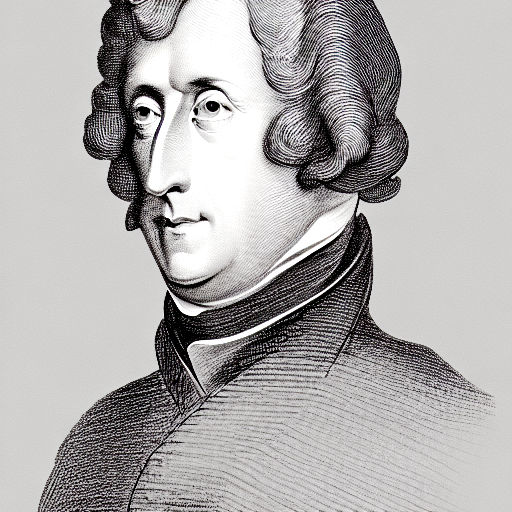Arthur Wellesley, 1st Duke of Wellington, (1 May 1769 – 14 September 1852) was an Anglo-Irish soldier and Tory statesman who was one of the leading military and political figures of 19th-century Britain, serving twice as prime minister of the United Kingdom. He is among the commanders who won and ended the Napoleonic Wars when the coalition defeated Napoleon at the Battle of Waterloo in 1815.
Wellesley was born in Dublin into the Protestant Ascendancy in Ireland. He was commissioned as an ensign in the British Army in 1787, serving in Ireland as aide-de-camp to two successive lords lieutenant of Ireland. He was also elected as a member of Parliament in the Irish House of Commons. He was a colonel by 1796 and saw action in the Netherlands and in India, where he fought in the Fourth Anglo-Mysore War at the Battle of Seringapatam. He was appointed governor of Seringapatam and Mysore in 1799 and, as a newly appointed major-general, won a decisive victory over the Maratha Confederacy at the Battle of Assaye in 1803.
Wellesley rose to prominence as a general during the Peninsular campaign of the Napoleonic Wars, and was promoted to the rank of field marshal after leading the allied forces to victory against the French Empire at the Battle of Vitoria in 1813. Following Napoleon's exile in 1814, he served as the ambassador to France and was granted a dukedom. During the Hundred Days in 1815, he commanded the allied army which, together with a Prussian Army under Field Marshal Gebhard von Blücher, defeated Napoleon at Waterloo. Wellington's battle record is exemplary; he ultimately participated in some 60 battles during the course of his military career.
Wellington is famous for his adaptive defensive style of warfare, resulting in several victories against numerically superior forces while minimising his own losses. He is regarded as one of the greatest defensive commanders of all time, and many of his tactics and battle plans are still studied in military academies around the world. After the end of his active military career, he returned to politics. He was twice British prime minister as a member of the Tory party from 1828 to 1830 and for a little less than a month in 1834. He oversaw the passage of the Roman Catholic Relief Act 1829, but opposed the Reform Act 1832. He continued as one of the leading figures in the House of Lords until his retirement and remained Commander-in-Chief of the British Army until his death.
Sol turns thousands of years of human wisdom from the world’s spiritual traditions into a totally unique personality profile. To get your own profile, check compatibility with friends and much more, download the Sol App today.
Some of their strengths
Duke of Wellington has many admirable traits.
Based on spiritual traditions from around the world, they are someone who can be described as Strong, Hardworking, Loyal, Generous, Optimistic, Bold, and Ambitious.
Strong and Diligent
According to Mysticism’s Astrology tradition, Duke of Wellington is someone who is a strong, diligent, and trustworthy person who approaches life with honesty and perseverance, but who is also physical, sensual, and artistic. A person who is known for being fun and creative.
Active and Precise
Based on Daoism’s Ba-Zi or ‘Chinese Zodiac’ tradition, people who know Duke of Wellington well know them as someone who can be tough, active, and sharp, like a sword.
Optimistic and Frank
According to Hinduism’s Jyotisha or ‘Vedic Astrology’ tradition, many would also describe Duke of Wellington as someone who is optimistic, principled, adventurous, and direct.
A person who isn't shy about expressing their opinions, loves competition, loves learning things themself, who is known for being inventive and original, and who loves being surrounded by friends and loved ones.
Altruistic and Ambitious
Based on the Mayan Tzolk’in or ‘Mayan Astrology’ tradition, Duke of Wellington is someone who is the type of person who rallies behind a group, cause, or community, and who enjoys being dedicated to a higher cause of some sort.
They are also someone who is confident and creative, and who has a love for starting new projects, inventing new things, and giving back to the community.
Patient and Compassionate
According to Judaism’s Kabbalah tradition, Duke of Wellington tends to be someone who approaches life with grace and compassion, and who has a powerful and commanding personality. Who can be analytical, patient, and deliberate, avoiding risks and seeking out stability instead.
Some of Duke of Wellington's challenges
While Duke of Wellington has many strengths, nobody is perfect. They also have some challenging traits they need to manage.
For example, Duke of Wellington can be Stubborn, Idle, Indecisive, Unrealistic, Suspicious, Pushy, and Restless.
Stubborn and Idle
One of Duke of Wellington's key challenges is that they are someone who can be seen as stubborn and, at times, lazy.
Duke of Wellington must also exercise caution as they can be excessive and unrealistic.
Pushy and Restless
Duke of Wellington is someone who can be arrogant and bossy, who can have difficulty concentrating and focusing, be unable to separate emotions from business decisions, and who can engage in excessive spending in support of an expensive lifestyle and habits.
Materialistic and Aggressive
Finally, Duke of Wellington also can be materialistic, emotional, aggressive, stubborn, inconsistent, and be prone to big temper outbursts.

